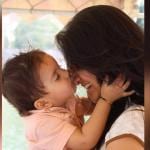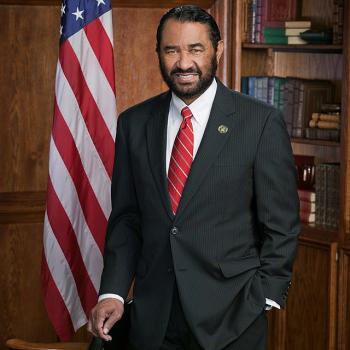
One in eight women gets breast cancer. I’m one of the eight.
Even if you survive, the cancer takes some pretty big chunks out of you, and a lot of women don’t survive. I’ve been to enough funerals, courtesy of breast cancer, to know that.
Then, there is the dirty little secret that oncologists and other cancer docs try to hide. Quite a number of people end up dying from the treatments, or, more likely, the after-affects of the treatments. Once again, I’ve been to funerals, courtesy of the damage done to women’s bodies by treatments for breast cancer.
If there was a vaccine for breast cancer, that would be … well … I have no words. Let’s just say nifty. It would be nifty to the 100th power of niftiness.
If my granddaughter could live her life without mammograms and fearful “questionable” reports and painful biopsies and degrading medical procedures for this hideous disease that would be nifty indeed.
My 94-year-old mother once stood on street corners with a coffee can, asking for donations to the March of Dimes. She wanted a vaccine to end polio. If I could end breast cancer the same way, you’d better believe I’d be out there this afternoon.
Keith Knutson, PhD, Director of the Discovery and Translation Labs at the Mayo Clinic, says that he thinks we can develop a vaccine for breast cancer during his lifetime. I don’t know how old Dr Knutson is, but I’m pretty sure his lifetime is considerably longer than the lifetime I’m looking at.
I almost certainly will not live to see this vaccine. But you might. And your daughters and granddaughters might.
In the meantime, Dr Knutson has vaccines in clinical trials right now to prevent recurrence of primary breast cancer. You read that correctly. These vaccines are in clinical trials today!
Think about it: A world without breast cancer. Wouldn’t that be nifty?
This is an article published last March by the Mayo Clinic that describes Dr Knutson’s work.
Buh-Bye, Breast Cancer?
Can breast cancer be prevented with a vaccine? Keith Knutson, Ph.D., Department of Immunology and director of the Discovery and Translation Labs Cancer Program at Mayo Clinic in Florida, thinks so. And he thinks it will happen during his lifetime.
In collaboration with the National Breast Treatment Coalition, Dr. Knutson has developed a vaccine that could prevent all three subtypes of the disease — estrogen receptor (ER)-positive, HER2-positive and triple-negative. The vaccine targets six proteins (HER2-neu, mammaglobin-A, MAGEA3, survivin, hTERT and MUC1) that have been found through multiple studies to overexpress in breast cancers.
The new vaccine is a fundamental shift from how vaccines traditionally prevent infectious disease. Rather than use a virus, bacteria or their components, Dr. Knutson’s vaccine immunizes against proteins that are encoded in a patient’s DNA.
“When we target an infectious disease with a vaccine, we generate immunity against the microorganism that causes the disease by attacking the foreign agent,” says Dr. Knutson. “Breast cancer isn’t caused by a microorganism. Rather, it is driven by the body’s natural proteins. Therefore, we are targeting the proteins, which hasn’t been done before in a vaccine for primary prevention. Cancer vaccines sensitize the immune system to the appearance of cancer tissue. We know from preclinical studies that targeting these molecules in animal models is safe. This is a new trajectory for how we prevent disease.”
Dr. Knutson is embarking on a yearlong phase I clinical trial with women who have been treated for
advanced metastatic breast cancer that is likely to recur. This effort is supported by the National Breast
Cancer Coalition.“We want to involve patients who are likely to benefit from the vaccine while we make sure it performs as we think it will — generating a safe immune response,” he says. “Patients who have had advanced metastatic breast cancer have nothing to lose.”
A phase II trial, likely to begin in 2020, will focus on patients who are at high risk for breast cancer. Dr. Knutson estimates it will take five to 10 years to determine if the vaccine reduced incidence of breast cancer in the high-risk population. A phase III trialwould involve 100,000 women across multiple centers.
“Look around you for a women who is about 25 today,” says Dr. Knutson. “By the time she completes her child-bearing years — around age 40 — we could conceivably have this vaccine ready to prevent her from developing breast cancer. This isn’t pie in the sky. We believe this is doable. We’re working as fast as we can. All of us on the team know women who are or have been affected by breast cancer. The only thing that could speed along our efforts is additional funding for more lab techs, regulatory staff, clinical trial experts and others.”
Preventing breast cancer recurrence
Keith Knutson, Ph.D., with team members Emilie Perkerson, a research technologist, and Geraldine Vidhy Raja, Ph.D., a research fellow.
Is it possible to prevent recurrence of breast cancer by stimulating the immune system?
Dr. Knutson thinks so. He has three vaccines in clinical trials to reduce mortality from breast cancer in the absence of a primary preventive vaccine.
“We know the immune system protects against cancer. People who have higher levels of immunity to cancer have better outcomes,” he says. “We’re working on ways to safely boost these protective responses because current drug treatments for cancer are highly toxic. Vaccines, however, are not toxic.
“If we can stimulate enough immunity to these cancers, our hope is that the immune system will take over and prevent cancer from developing or recurring.” (Read the rest here.)














